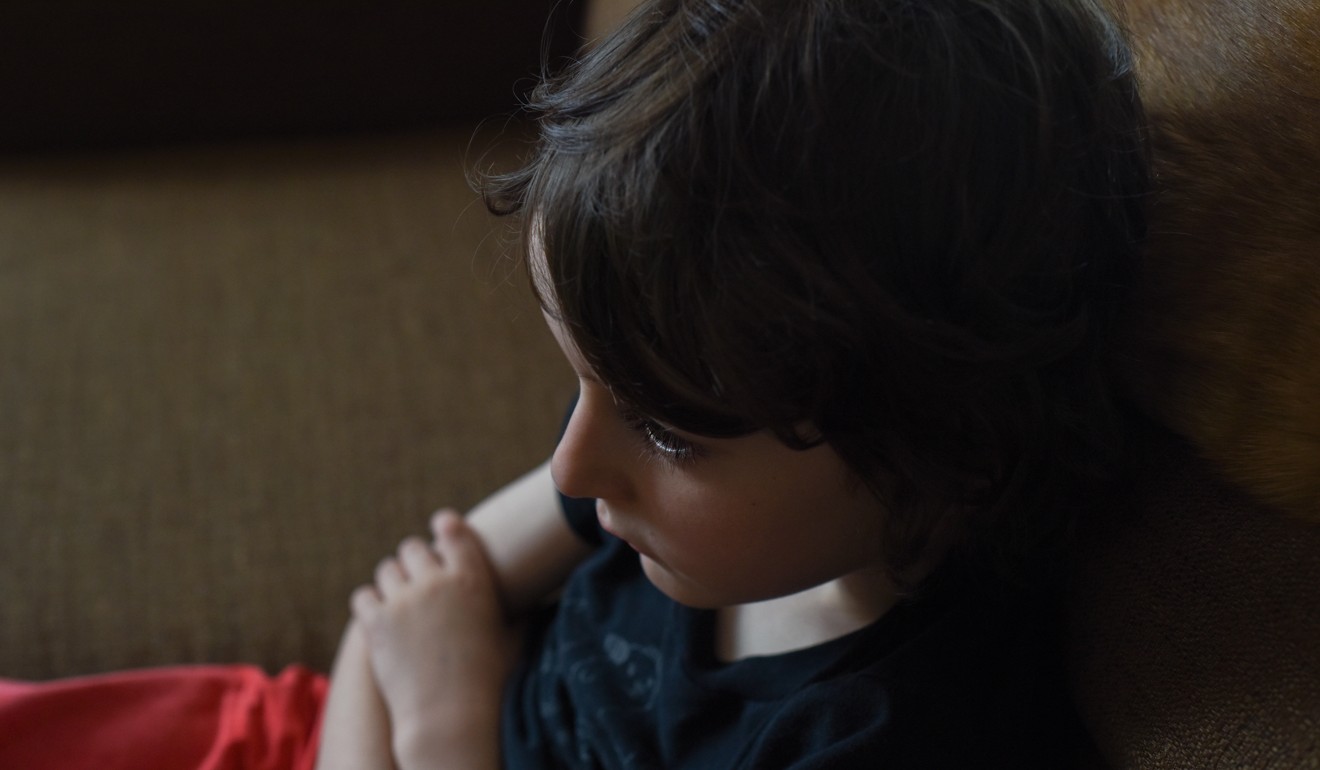
Talking about mental illness helped mum understand her depression and unify our family. How to start that conversation
Anthea Rowan’s mother has battled depression for decades. From a young age, her family had an open dialogue about mental health. She explains how best to open up and talks to doctors about why it is beneficial
“We need to talk about mental illness the way we talk about the kitchen sink, in normal language that will carry it beyond a clinical view,” novelist-turned-psychologist Carolyn Slaughter once said to me.
I learned this early on. The madness that descends with mental illness was, ironically, part of my normality. My mother became ill when I was 12. There was no way of avoiding it when your mum is admitted to a psychiatric ward. You just need to sit down and address the elephant in the room: the enormous gap her illness gouges.

You especially have to talk about it when you’re the eldest of three, and when it’s the 1970s and nobody else wants to talk to your dad about it – especially when he wants to talk.
Whether he was too afraid to do so himself, or because it was a smart way to involve his eldest child in a conversation about her mother – I also found myself talking about mum’s mental illness to her friends after dad encouraged me to call them and ask them to please visit her in hospital.
“Of course darling,” they said, and then, confused, they asked, “But why? What’s the matter with her?”
She has depression, I said. Dad had given it a name, this peculiar, invisible illness and that was a really good thing – giving it a real name, made it a real illness.
It is crucial, says Hong Kong psychiatrist Dr Frances Cheng, “to remember that mental illnesses are as valid and real as any other illness; even though sufferers don’t bear physical scars, they are genuinely hurting”.
Talking about mental illnesses regularly, and having an ‘open door’ to conversation, makes it easier for people to cry for help when they feel that they are becoming unwell again
Dr Alex Li Wai-ki, lead psychologist at St John’s Cathedral Counselling Service in Hong Kong, advocates for my dad’s instinct in initiating a conversation about mental illness. “When things are not talked about at home, despite a child seeing a parent suffering, there’s a risk that child may internalise that pain and worry they are to blame,” he says. “The opportunity to correct misunderstandings is valuable as it decreases the level of fear and anxiety for the child, which in turn enables the child to ask questions which may alleviate their fears.”
Certainly, dad’s proactive, honest approach set a precedent. It forged a bond between us. It meant I was never afraid to ask about mum’s illness or to talk about it. I have talked about it since – mostly to mum. She said it helped her to articulate her desolation: it helped her understand why it manifested, and when it manifested, and it helped her feel supported.
As Cheng says: “Inquire after that person as if they were unwell from any other physical condition – show care and consideration, be empathetic and understanding.”
I have raised my children on the same conversation, often explaining their grandmother’s recurring “unhappiness”, and reassuring them it was not their fault.

Of course, it’s difficult. As Li says: “Talking about mental illnesses is not easy, especially if you are trying to explain it to a child. It’s tempting to brush it under the carpet, but children are more perceptive than we think.”
Tips on battling depression from a legendary ultra runner who exercises to avoid the next attack
Taking ownership of mental illness within the family is crucial. Knowing dad had my back in this battle against mum’s demons (as presumably he understood I had his) meant we were united; a front joined later by my siblings. And you need that: you need courage to face the rest of the world when you’re explaining mental illness, for it is so stigmatised, so isolating.

As Dr Monica Borschel, a clinical psychologist at Hong Kong’s Mindnlife clinic observes, “The family is a built-in social-support system” – for both sufferers and their supporters. “It’s important that people feel safe within the family to say, ‘I need help’.” Safe to speak, without fear of dismissal or, worse, judgment.
Li says research shows that talking about mental illness in a family “has positive outcomes such as increased trust and a unity in coping with the illness as a family”. You need to feel emboldened to face the rest of the world when mental illness muddies your private one. Muscling up at home is a great place to start.
Even when fortified by family, talking to others can be difficult says Li, not only because mental illness is stigmatised, it’s also “often invisible to others. People only see the behaviours exhibited by the person suffering rather than the cause of it”.
As one in six Hong Kong people suffers from mental illness, Dr Lucy Lord talks about how the city can change its outlook
When she was ill, my mum appeared withdrawn, ill-tempered, and unfriendly. That wasn’t her, it was her illness. I knew that, I wanted others to understand this was not how she was, this was how depression made her – partly to explain away her unacceptable behaviour, partly in defence of the person she was when well.

As I grew up, I accompanied mum to appointments with psychiatrists which lent a new dimension to the conversations I had about her illness. I was fortunate. The very first conversation I had was memorably empowering. The doctor explained my mother’s sickness as – yes – a mental illness, but one that had roots in her physiology.
“Your mum lacks the right brain chemicals in the right amounts to manage her mood – just as a diabetic needs insulin, so your mum needs medication to stay well,” he says.
Mental illness is largely invisible, intangible, difficult to pin down, and impossible – until you understand much more – to explain.
People scoffed about mum’s illness. “What does she have to be depressed about? She has such a lovely patient husband, a beautiful home, three happy children,” they would ask.

You need to talk about mental illness at home so you understand it yourself, and are bold enough to explain it to others. You need to listen to those who are ill, and, as Cheng says, “Be patient, sometimes the symptoms they are experiencing are new to them, too. They might have difficulty in expressing themselves”.
And you especially need to talk so that those dislocated by the awfulness of mental illness feel less isolated.
How to talk about mental illness
“Expressing emotion can be seen as a weakness. Remember, being able to reach out for help is a brave thing to do,” Borschel says. “People with depression and anxiety often keep to themselves because they don’t want to burden others. Recognise their courage in talking, and allow them to do so and take the conversation up.”
Why you can’t eat your way to happiness – one woman’s story of swapping antidepressants for oat cakes and feeling more depressed
Talking about mental illness within the family, says Li, offers the opportunity to reassure children that mental illness, like almost all illnesses can, “under the right care, be treated and managed”. This brings the illness into the realms of “ordinary”, like other illnesses.
Always tailor conversations so that they’re appropriate for the child’s age. If you’re explaining illness to a child, talk about mental illness being the antithesis of mental health – we all have that, and are therefore, all vulnerable to being mentally sick. Just like we’re all vulnerable to all manner of illnesses. Invite children to ask questions, then answer them.

“Talking about mental illnesses regularlyand having an open door to conversation, makes it easier for people to cry for help when they feel that they are becoming unwell again,” says Cheng. “Conversely, family members are also more likely to let sufferers know if they are observing changes in [their] behaviour, which may indicate an oncoming episode of illness. This may help patients seek medical attention sooner and reduce the severity of the episode.”
And if you’re talking to a sufferer, she says, “show an interest and ask questions if you do not understand something. By engaging and expressing genuine concern about the person and condition you will be encouraging them to share more about how they feel with you” and that, in turn, will help them to articulate how they are feeling when they’re describing it to others, including a therapist.

